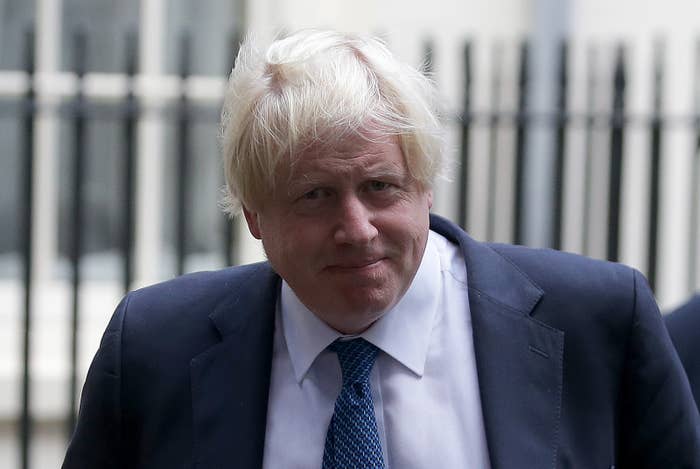
The officer leading the UK military's hurricane relief effort in the Caribbean has strongly defended the operation after foreign secretary Boris Johnson described the international response as "all a bit piecemeal and hand-to-mouth".
Johnson made the comments on Monday night at a meeting on the margins of the United Nations general assembly, according to The Guardian.
"I wouldn't describe it as hand-to-mouth," said Brigadier John Ridge, who has spent the last fortnight co-ordinating a complicated joint military, Foreign Office, and UK aid response to the unfolding disaster in the Caribbean.
"What I would say is we took a degree of risk in order to make sure we could respond as quickly as possible," Ridge told BuzzFeed News from his headquarters in Barbados. "What we've done since those early days is gradually stiffened the sinews of our logistics chain, our transport mechanism and ensured the airports are up and running and reliable."
"I'm very comfortable with the fact the priority was to get in there and get doing stuff. I wouldn't say it was hand-to-mouth from my perspective."
The UK's response to the storms in the British Overseas Territories of Anguilla, Turks and Caicos, and the British Virgin Islands came under early criticism from some MPs in the UK.
However, Ridge said there was little more that could have been done given the enormous challenge of coordinating the deployment of aid supplies and more than a thousand military personnel across a series of isolated islands spread out over hundreds of miles of Caribbean sea.
Tonnes of aid have already been distributed by the British government while substantial further supplies are due to arrive on the Royal Navy's HMS Ocean and a ship provided by the Netherlands. However, the post-Irma cleanup operation has been complicated by the unexpected arrival of Hurricane Maria, which is expected to pass by the British Virgin Islands late on Tuesday night.

Additional Royal Marines have been deployed to British Virgin Islands in advance of the new hurricane and ordered to find secure shelter before waiting out the category five storm. Military personnel predict that the hurricane could result in flooding on the islands, with lethal debris flying through the air and a lack of safe housing for many local residents whose homes are already partly destroyed.
"The aid package that we've got ready, which was going to help with the road to recovery from Irma, is now going to be needed for relief and recovery post-Maria," said Chris Adams, who is responsible for the UK's government aid programme in the region. He also praised Virgin's Richard Branson, a resident of the islands, who has pledged to fly in building supplies.
However, the military are deeply concerned about the major public health risks faced by the population of the British Virgin Islands if they have to endure a second hurricane in a fortnight.
"We think priority is going to be shelter, probably water, and the health and hygiene side of things," said Ridge.
The brigadier said he was also preparing contingency plans in case Dominica or the French territory of Guadeloupe request British military assistance or aid, while confirming has already pulled out of the neighbouring US Virgin Islands due to the risk of the storm: "I took the decision to pull the UK military personnel out of there. The US military have already pulled out of the base."
Despite the foreign secretary's calls for greater coordination and planning in future, the brigadier praised the "very quick" arrival of British troops who were on the ground in the British Virgin Islands within 48 hours of being given warning to leave the UK.
"At the early stages we came forward as quickly as we can and by pushing people out as quickly as we could we took a degree of risk by making sure people were deployed in the British Virgin Islands before we had all the normal structures in place."
"If we were doing this in normal time we would build up all our logistics stocks, build up our transport networks. That was not the position we were in because of the speed with which we had to react."
